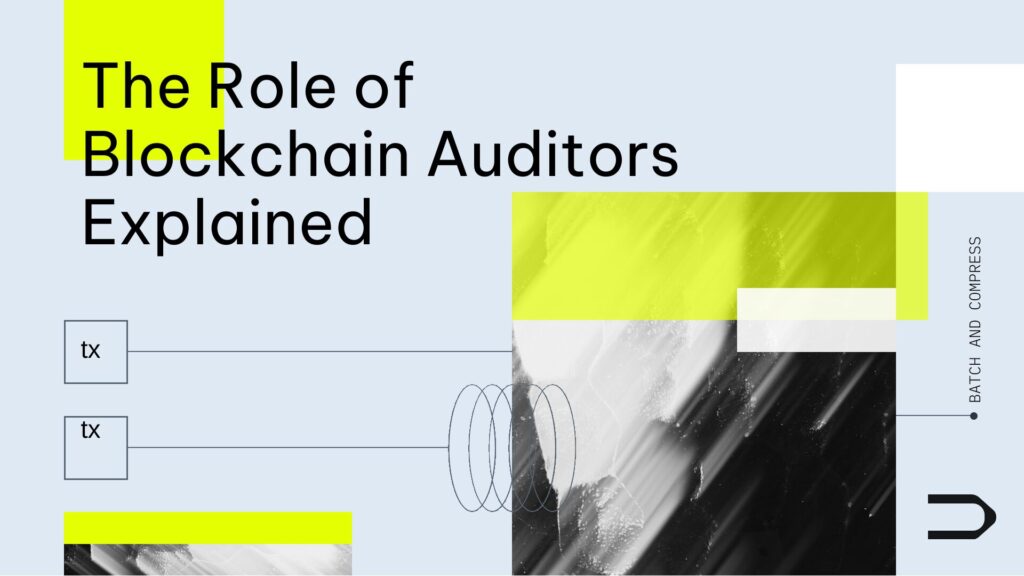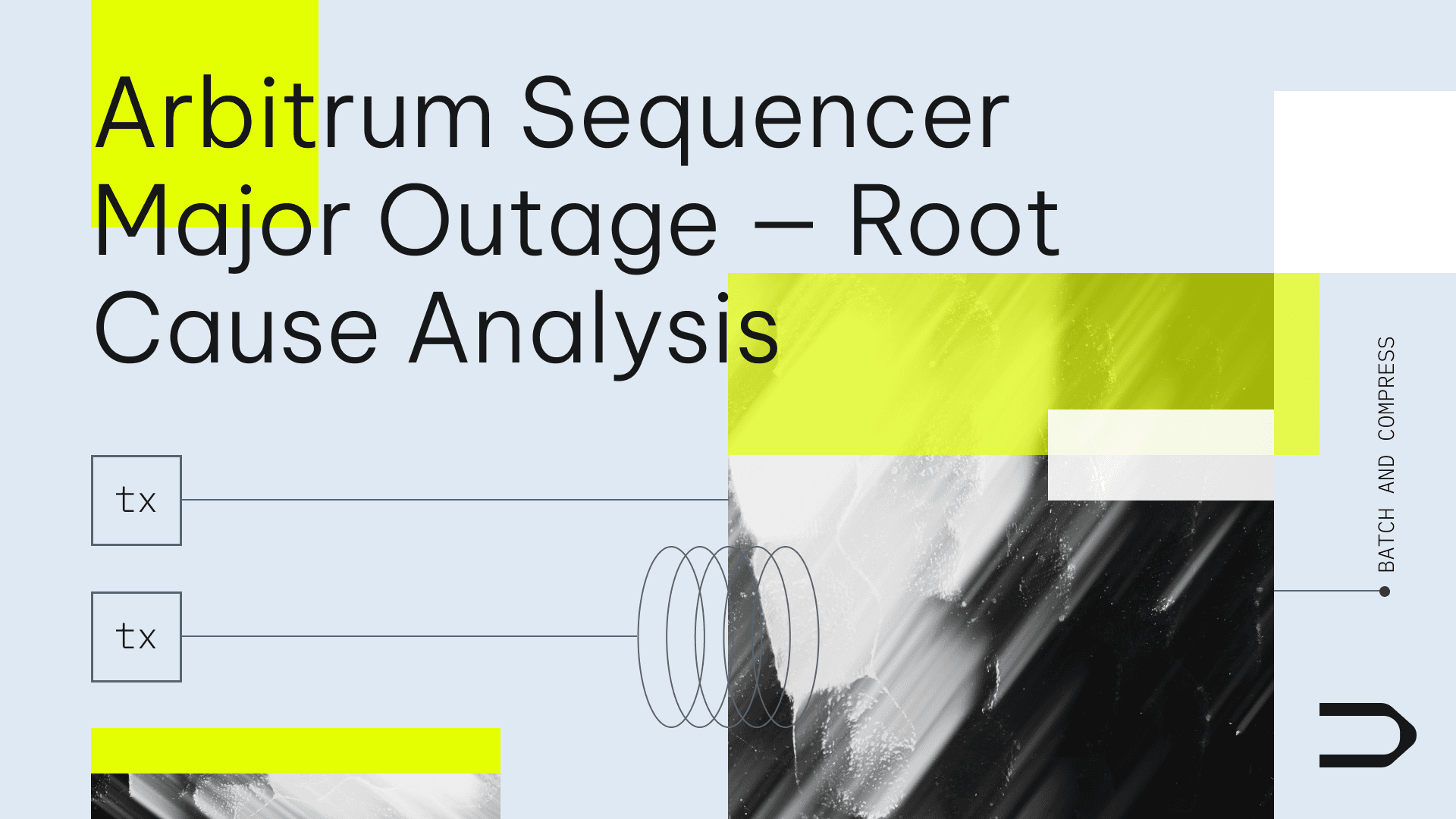The Role of Blockchain Auditors Explained
Security is vital in blockchain technology. With so many DeFi and other financial transactions running on Web3 platforms, even a tiny glitch in a smart contract can lead to significant monetary losses. Blockchain Auditors are crucial for these systems as they require a specialized cybersecurity approach to keep everything safe.

Blockchain auditors are essential for ensuring blockchain networks’ security and best practices. They thoroughly examine smart contract code, identifying vulnerabilities and meeting industry standards.
Blockchain auditors go further, advising on best security practices in the cryptocurrency space and shaping the security roadmaps of various projects.
In this article, we will clarify the role of blockchain auditors and offer Web3 Developers and other professionals a thorough understanding of blockchain audits and their practical applications.
Let’s explore the world of blockchain auditing so you can truly grasp how it can strengthen your project’s cybersecurity measures.
Understanding the Need for Blockchain Auditors
Blockchain’s decentralized nature introduces unique security challenges. As Web3 platforms grow in complexity, so does the potential for vulnerabilities.
Smart contracts are often the backbone of blockchain platforms, but they can have hidden flaws. Without thorough examination, these flaws may result in serious security breaches. Blockchain auditors have the expertise to analyze and identify potential security weaknesses.
What’s more, the evolving landscape introduces additional complexity for organizations. They need to stay current with industry best practices to maintain resilience and a competitive edge.
Blockchain auditors play a crucial role in connecting innovative technology with regulatory compliance, helping to protect both user assets and the organization’s reputation.
The Blockchain Auditor’s Toolkit
An auditor’s effectiveness relies on the quality of their methodology and tools. These tools are crucial for identifying hidden vulnerabilities in blockchain networks.
Key components of their toolkit often include:
- Static analysis tools for code inspection.
- Dynamic analysis platforms for runtime testing.
- Formal verification frameworks to prove correctness.
- Fuzzing tools for automated vulnerability discovery.
- Penetration testing software for simulating attacks.
These tools are vital for assessing the strength of smart contracts and blockchain protocols. By using various resources, blockchain auditors offer insights into potential risks, enhancing the robustness of Web3 projects.
Key Responsibilities of a Blockchain Auditor
Blockchain auditors’ primary duty is to identify vulnerabilities within blockchain networks and provide actionable recommendations. They need in-depth knowledge of blockchain technology and smart contracts to ensure the security, integrity, and adherence to industry best practices of these digital ecosystems.
A blockchain auditor’s responsibilities generally include:
- Conducting comprehensive security assessments.
- Collaborating with developers to address identified issues.
- Evaluating alignment with recognized crypto best practices and industry guidelines.
- Providing detailed audit reports with improvement suggestions.
Skilled auditors participate in ongoing education to stay ahead of emerging threats and trends. This preparation helps them effectively tackle the evolving challenges in the blockchain space.
The Audit Process: From Code Review to Compliance
The blockchain audit process involves a thorough examination, starting with a detailed code review. Auditors analyze the code to identify vulnerabilities such as reentrancy attacks, overflow issues, and other potential weaknesses.
Blockchain auditors also assess the overall architecture, which includes both on-chain and off-chain components. This comprehensive approach helps identify systemic vulnerabilities that may not be visible through a code review alone. Auditors consider how these components interact with each other and the larger ecosystem.
Auditors play a crucial role in upholding the standards of the Web3 community by ensuring that projects operate transparently and ethically. They evaluate whether a platform is at risk of being exploited for personal gain, including issues like rug pulls, excessive centralization, or other harmful practices. By identifying these potential risks, blockchain auditors help maintain the integrity of the ecosystem and protect user trust.
Their work involves aligning projects with the principles of decentralization, fairness, and accountability fundamental to Web3. By doing this, auditors shield organizations from reputational and legal risks and promote a secure and equitable environment for all stakeholders.
Automated Tools and Manual Review
The audit utilizes automated tools and manual reviews to ensure thorough security coverage. Automated tools can quickly scan codebases, thus systematically identifying potential vulnerabilities and exploits. They are essential for efficiently examining large volumes of code.
However, human oversight remains crucial. Manual reviews offer deeper insights that automated tools could potentially miss, identifying subtle issues requiring context-specific understanding.
Expert blockchain auditors utilize their knowledge to validate the findings from automated processes, providing nuanced insights that enhance the project’s security posture. This combined approach merges speed with thoroughness, resulting in a more robust security analysis.
The Strategic Role of Blockchain Auditors in Cybersecurity
Blockchain auditors also act as strategic partners in cybersecurity. Their insights assist organizations in creating robust blockchain systems designed to resist evolving threats. By identifying vulnerabilities, auditors help develop a security roadmap and ensure that security measures align with business objectives.
Auditors conduct technical assessments and guide best security practices and risk management strategies. They encourage collaboration between developers and security teams, thus promoting a culture that prioritizes security.
Selecting the Right Blockchain Auditor for Your Organization
Choosing the right blockchain auditor is essential for adequate security. Experience is key. Look for auditors with a track record in your specific industry or blockchain technology. Their past work and reputation can provide valuable insights into their expertise and reliability.
Another important aspect is the auditor’s approach to collaboration and communication. The best blockchain auditors engage with your team, offering clear, actionable reports. They should be able to articulate complex technical findings in simple terms for decision-makers. This will ensure all stakeholders understand the risks and recommendations, facilitating informed decision-making and swift remediation. Check out the Dedaub Audit Report repository.
The Evolving Landscape of Blockchain Auditing
Blockchain technology is in its infancy and evolving rapidly, transforming auditing. New applications in decentralized finance (DeFi), such as decentralized exchanges (DEXs), crypto funds or portfolios (indexes), collateralized debt positions (CDPs), options, insurances, and vaults, are all emerging. These innovations present unique challenges and opportunities for blockchain auditors, who must adapt to the latest technologies and address potential vulnerabilities.
Auditors in the Web3 space encounter distinct security challenges, as many projects do not follow the established security best practices typically seen in Web2. Key vulnerabilities include the improper storage and management of private keys, which can expose them to theft or misuse. Additionally, these projects are often susceptible to Trojan attacks and social engineering schemes.
The fast-paced evolution of blockchain technology and the tactics employed by attackers underscores the urgent need for blockchain auditors to address these vulnerabilities. Therefore, by staying informed about Web3-specific risks and traditional security principles, auditors can implement effective and comprehensive safeguards in this dynamic environment.t.
Conclusion: Integrating Audit Insights into Cybersecurity Strategy
Blockchain audits play a crucial role in strengthening cybersecurity strategies. They offer valuable insights enabling organizations to identify vulnerabilities and improve security measures. By incorporating the findings from these audits, the Web3 projects can ensure that their systems remain resilient against new threats, aligning their security efforts with technological advancements and the organization’s objectives.



